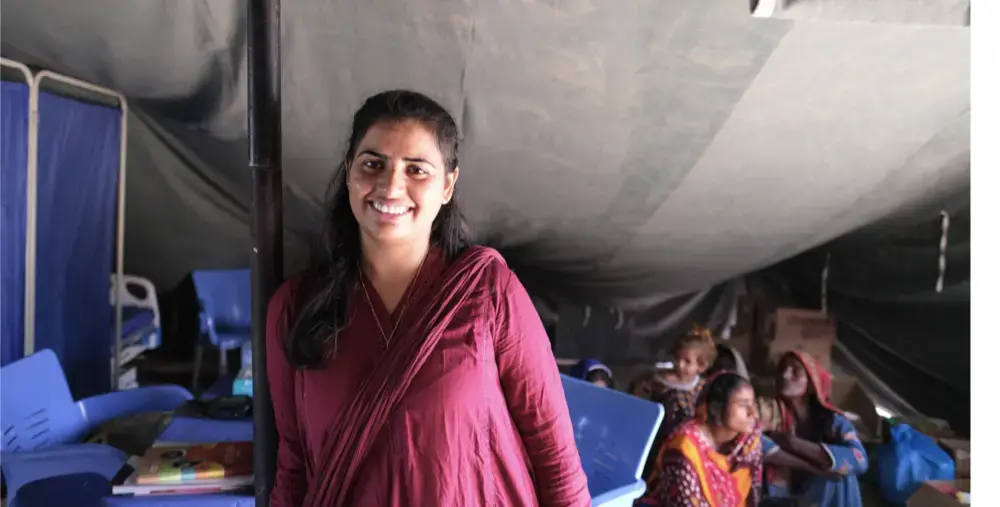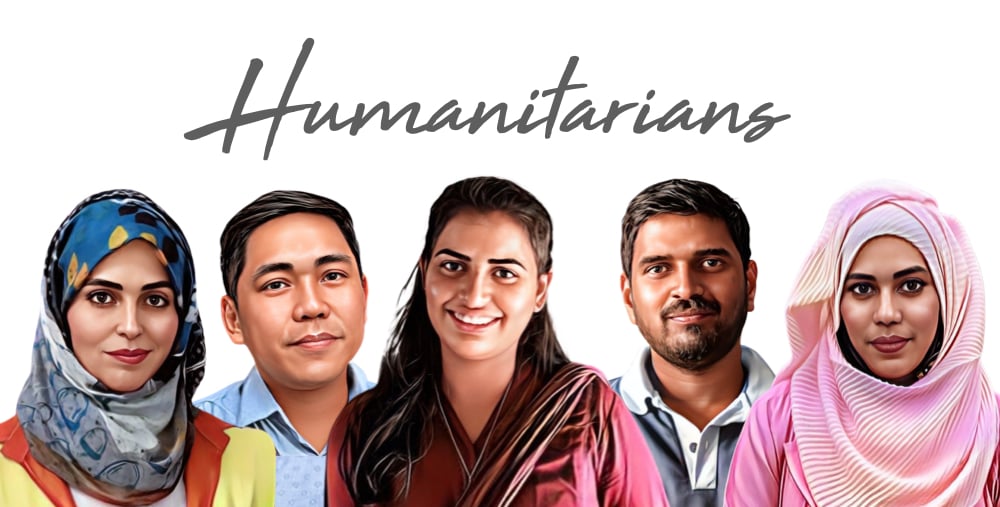Profile: Dr. Sidra Ahmed, Humanitarian from Pakistan
“In an emergency, every pregnancy is a high-risk pregnancy”
Dr. Sidra Ahmed is an Obstetrician and Gynecologist in charge of maternal, newborn, and child health care activities in Thatta district in Sindh province, one of the most impacted areas from the 2022 floods in Pakistan. She leads a team at the Al-Farabi hospital, PNFWH and provides life-saving sexual and reproductive health services to flood affected communities through community outreach teams, mobile medical teams, static clinics, and referral services supported by UNFPA.
“The situation of women is terrible because here women's health and sexual reproductive health is overlooked,” Sidra says. “In an emergency every pregnancy is a high-risk pregnancy.”
When the flood hit 33,000 pregnant women were at full term and in dire need, and the situation for women’s health has only become more urgent. “Despite the hard conditions created by floods we could not overlook these women or let them die. There should be no maternal mortality because when a mother dies, the whole family dies. Such a loss cannot even be imagined.”
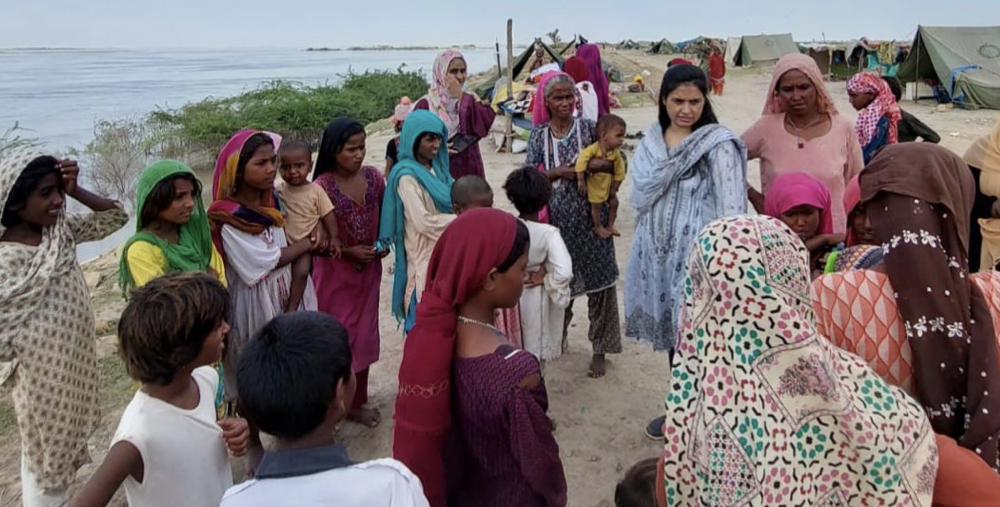
During the flood response Sidra led a team of community midwives to deliver sexual and reproductive health care to families displaced by the climate disaster.
The areas affected by floods were hard to reach due to infrastructure problems and that few want to work in these hard-to-reach areas because of a feudal lord system Sidra explains,“Local leaders use violence and intimidation to direct humanitarian aid and medical resources. We have to work. Regardless of all circumstances: respect, dignity, confidentiality, these are the principles that we have to maintain.”
She says violence and intimidation from feudal lords made her more focused on her core principles. “I got a call from the feudal lords of that area. They wanted me to work for them, to work only for a certain population to establish more power in their system in that area. However, my team was working for everyone, for all communities to benefit. They threatened me. I was continuously getting calls because they wanted me to discriminate. But we had made one policy: never ever discriminate.”
"I knew I could not stop working here as it is not a matter of my health but it is a matter of a hundred thousand women.”
Gangs connected to the feudal lords continuously called her for for nights on end and threatened to abduct her and even rape her. “I would stay up awake all night out of fear and then work for patients in the morning. It is for these patients that I decided to stay here and not go back to Karachi. I knew I could not stop working here as it is not a matter of my health but it is a matter of a hundred thousand women.”
Sidra says she has encountered serious medical concerns for women who in remote areas had been denied sexual and reproductive health.
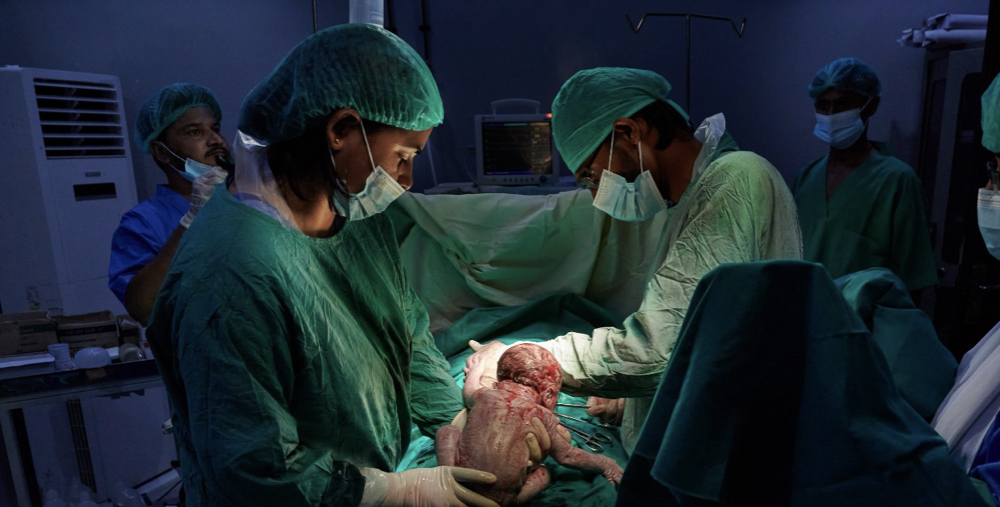
“It is normal for women to give birth to 15 children,” she says. “Women will give birth until menopause until the end of their menstrual cycle. But there is nutritional deficiency, there is anemia, there is an antepartum hemorrhage and postpartum hemorrhage and despite being full term they deliver low birth weight babies.” This is where providing family planning services becomes extremely important and our midwives constantly promote the idea of birth spacing (Waqfa) among the community and aid in reducing the unmet needs of family planning.
She says gender-based violence is a serious problem here and women’s rights are routinely violated. “There were so many unintended pregnancies,” Sidra says. “There were sexually transmitted infections, HIV infections, pelvic inflammatory diseases, urinary tract infections, and fistula formation. There is so much intimate partner violence because the husbands are unemployed. Therefore they exhibit their power and frustration through violence.”
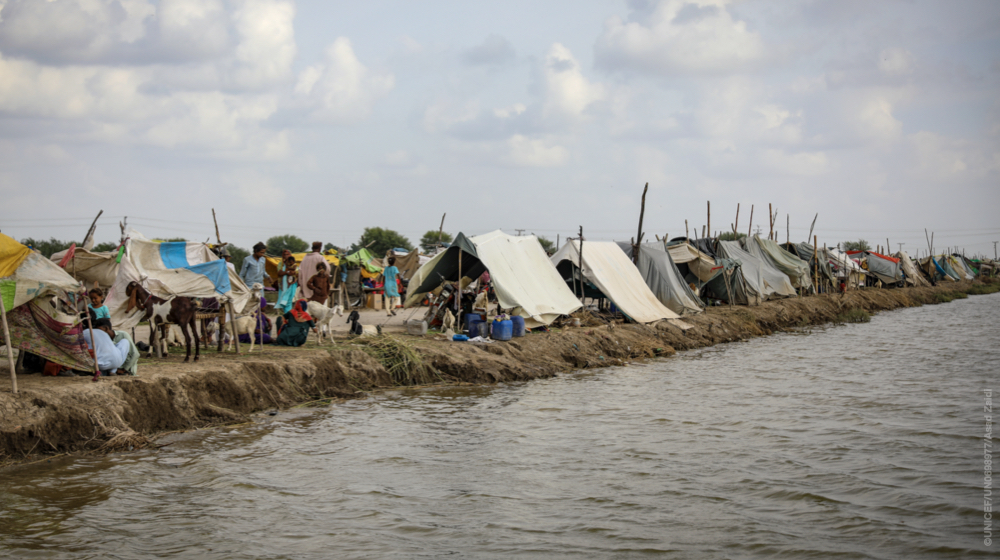
Sidra says many adolescent girls lost their parents in the floods. “They were in the hands of the extended family members who were mis-using them. I have witnessed burn patients, to my horror, I have also witnessed an honor killing.”
She tells the tragic story of a 16 year old girl: “My midwife told me that a girl came with her mother with the complaint that she has a fibroid uterus. She has a big womb. My midwife did an ultrasound scan and found out that she was actually pregnant. The girl anxiously told that she was raped by the feudal lord. Her mother took her away before we could give her any treatment for termination of pregnancy. None of my team members were at peace after this as we know of the consequences of it: we found out the next day that the girl had been killed by her uncle to protect the honor of their family.”
“I do not have many success stories,” Sidra says. “There are a significant number of deaths in my district because of gender-based violence. I am conducting male-male sessions on gender-based violence to change the mindset of perpetrators. In our society masculinity is equated with violence therefore changing mindsets is essential.”
Sidra says one women's and girl friendly space has been a lifeline. “It is a safe space for women and adolescent girls where they are encouraged to come regularly as we empower them, give livelihood support by teaching new skills, and educate them about psychosocial well-being. We use this space to raise awareness with a community-centered approach on taboo topics such as menstruation, importance of maintaining health and hygiene, and the consequences of gender-based violence and teenage pregnancies. Almost all women have their individual stories about how gender-based violence has impacted them and we provide psychosocial support along with referring them to any legal help if they ask for it.”
Sidra says it will take years to change the abusive behavior but women have started to know their rights. “Family planning needs proper counseling and there can be no one better than community midwives to play this role. Many women have come and confided in the midwife that they want family planning services but do not want their husbands to know this. Is there any method that a husband will not know?”
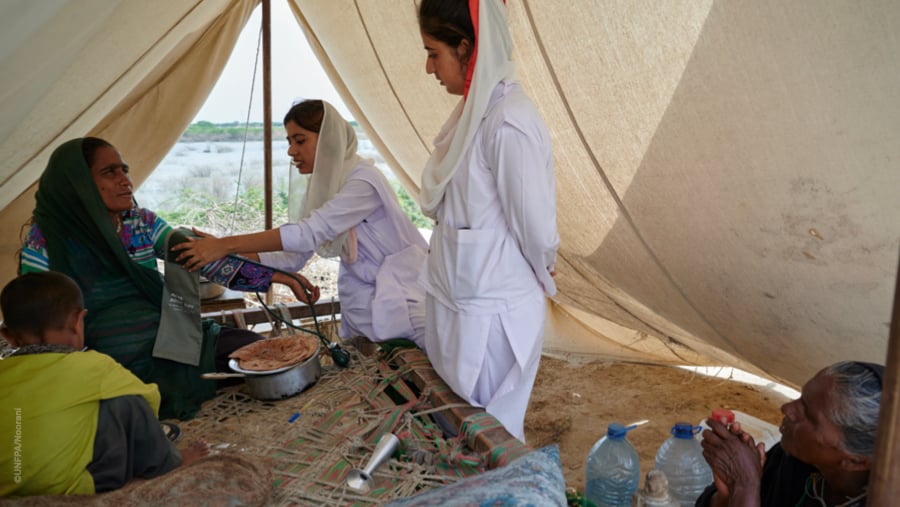
“Midwives have a good rapport with the patients. And belonging to the local community they very well understand the needs of women. Pakistan has a chronic shortage of community midwives. According to WHO standards there should be 11 midwives for a thousand people, but in Pakistan, there are just 0.5 midwives for every thousand. If we want to save our mothers’ lives, we have to educate and invest in midwives. We have to start more community midwife programs.”
Sidra shared her recent experience where there was a mortality. “A woman died because of miscarriage, she was bleeding and she kept telling her husband that she wanted to go to the hospital, please let me go. But he refused and said he would take her to the hospital in the morning. Just sleep. She had a retained placenta and she bled to death. In the morning when he woke up, she was dead. She had a hemoglobin of 4.5gm/dl and minimal bleeding turned out to be fatal. Sadly, this is the true picture of women in this country.”
“No matter what the circumstances, when humanitarians work along the guiding principles of humanity we can live in a world with gender equality and bring a positive change in people’s lives.”
“There should be more sessions including talks on sexual and reproductive health and rights and family planning services and its benefits. We need more resilient communities. People should be aware of their rights. We should empower women to enjoy their reproductive rights, being protected from forced marriages and forced pregnancies and to plan birth spacing with their partners. Teenage girls should know their right to say no to marriage if they are not mentally ready for it at that moment or if they do not feel compatible with their chosen partners. We should invest in women’s skills, education, social and economic opportunities as this will ultimately protect from gender-based violence.”
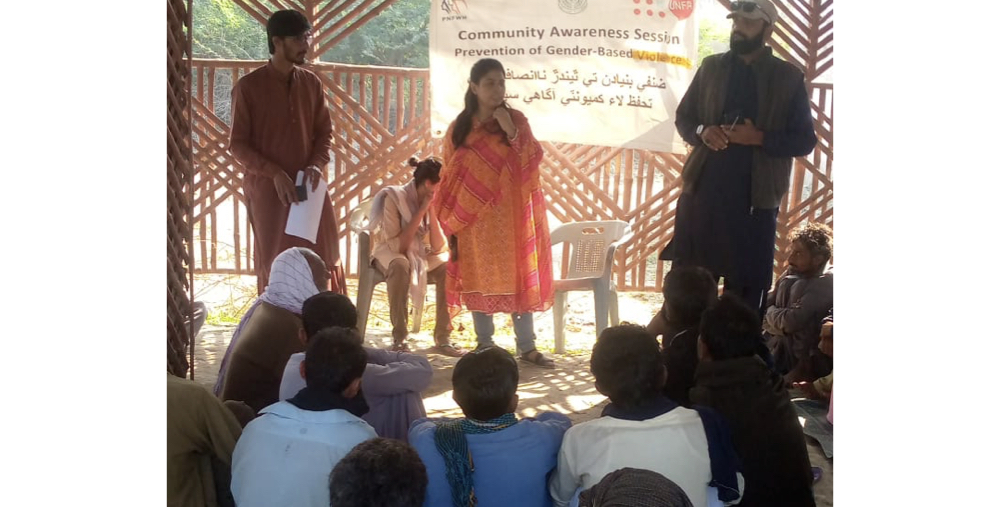
Sidra says humanitarian response is everyone’s responsibility. “No matter what the circumstances, when humanitarians work along the guiding principles of humanity we can live in a world with gender equality and bring a positive change in people’s lives.”
During conflicts, natural disasters and public health emergencies, sexual and reproductive health needs are often overlooked – with staggering consequences. Pregnant women risk life-threatening complications without access to delivery and emergency obstetric care services. Women and girls may lose access to family planning services, exposing them to unintended pregnancy in perilous conditions. Women and girls also become more vulnerable to sexual violence, exploitation and HIV infection.
This collection of stories celebrates some of the humanitarian heroes working in emergencies across Asia and the Pacific. READ MORE

